The Irrawaddy Magazine |
- Analysis: Proposed Amendment Raises Fears About Rights to Free Expression
- Nationalist Monks Crash Press Conference Called by Critic of U Wirathu
- Women Photographers Own Yangon Photo Night 2018
- Nine Children Die in Kachin State Boat Accident
- Finance Ministry Seeks Approval for Low-Cost Housing Plan
- More than 100 Prisoners to Sit Matriculation Exam This Year
- Myanmar Delegation Barred From Genocide Conference In Berlin
- FELA’s Paintings of Myanmar’s Way of Life Find an Audience after His Death
- Apple Moves to Store iCloud Keys in China, Raising Human Rights Fears
- Philippine Catholics Protest Drug Killings, Death Penalty
- Bangladesh Police Free Detained Foreign Aid Workers
| Analysis: Proposed Amendment Raises Fears About Rights to Free Expression Posted: 26 Feb 2018 06:39 AM PST YANGON— Myanmar's controversial protest law has again been tabled in parliament with two major amendments scheduled to be debated this week. The changes include a requirement that the sources of protest funding be identified and the stipulation of jail terms for people using such assemblies to instigate unrest. The bill, which seeks to amend the Peaceful Assembly and Peaceful Procession Law, was submitted by the Upper House Bill Committee last week. The legislative push is being viewed as the latest attempt by the NLD-dominated parliament to deter those with hidden agendas from masterminding protests and to reduce the risk of racial and religious violence. "It seems they want to expose the dark elements [behind protests]," outspoken former Yangon region lawmaker and legal expert Daw Nyo Nyo Thin said, citing the requirement that would-be organisers of peaceful assemblies and processions inform police in advance not only of their agenda and the estimated numbers of people involved, but also the expected costs and the identity of the persons or organizations that would cover the costs. Several mass rallies have been held against the government in recent months to protest a string of actions by authorities including the imposition of a one-year preaching ban on the ultranationalist monk U Wirathu, the arrest of nationalists and a ban on the country's biggest religious nationalist group, the Association for Protection of Race and Religion, or Ma Ba Tha, from operating under its name. Following a protest against Religious Affairs Minister U Aung Ko in May last year, the ministry released a statement that the alleged protesters were paid sums ranging from 7, 000 to 30, 000 kyats (US$5-$22) to participate. More recently, nationalists appeared at the court hearing for slain lawyer U Ko Ni in early February wearing T-shirts printed with the slogan "Eat well (before you die)" to show support for the four men accused of involvement in the murder. The phrase in Burmese is considered a threat to show one's anger and to warn of impending revenge. Daw Nyo Nyo Thin said she personally agreed with the amendment seeking disclosure of the funding sources. "We ask the government for accountability and transparency. So I personally believe we, the organizers should also be OK revealing the funding sources and estimated costs," she said. She added, however, that it would be more convenient to present the information after the demonstration, as, for example, in student demonstrations, individual residents often donate to the protestors as they march by. Free speech advocate Maung Saungkha wrote that the proposed requirement wouldn't impact protests funded by a party or political cronies but would complicate the organization of protests by farmers, workers and students, as the public helped fund participation in such rallies with contributions of 500 kyats or 1000 kyats per person. He added that the amendment could cause these donors to hesitate as their names would be given to the police for supporting the protest. Despite the disagreements over to the proposed requirement to identify funding sources, the most controversial part of the draft bill is the stipulated jail terms for using protests to instigate unrest. The amendment states that anyone who provokes or exhorts others to organize or participate in demonstrations by bribing or paying them or doing anything else with the intention of "harming the stability, rule of law, peace and tranquility of the community and public morality would face a prison sentence of up to three years." Daw Nyo Nyo Thin said the clause "harming the stability, rule of law, peace and tranquility of the community and public morality" is too vague and broad, as is the phrase "doing anything else". "How will they define which act harms the stability or peace and tranquility of the community?" she asked. The clause, which has its origins in the military-drafted 2008 constitution, was broadly used in the past to crack down on political activists, Daw Nyo Nyo Thin said. She said the legislators and the government should keep in mind that the Ministry of Home Affairs, which is under the control of the military and not the government, is the body that would implement the law after it is approved. She added that if the bill were approved, it would make worse the state's repression of dissidents. "It will not be good for the image of the country's democracy or the government," she said. The same phrase was added to Article 4 of the law under the amendments, stating that demonstrators who want to exercise their right to peaceful assembly and procession are required to inform the police at least 48 hours before the intended day of the rally and to ensure the rally is "not contrary to the existing laws, stability, rule of law, peace and tranquility of the community and public morality". Free speech advocate Maung Saungkha wrote on Friday that the changes would give the police total authority to ban a protest if they judged it to be potentially harmful to the stability and peace and tranquility of the community. The Upper House lawmaker Daw Ei Ei Pyone from Irrawaddy Division said the parliament would discuss the precise wording of the legislation in upcoming parliamentary sessions. "I think it is necessary to prevent the intentionally created problems by some while the country is already struggling with many problems and challenges," she said. She added that she believed the amendments wouldn't have an impact on free expression. It is not good having those who pay money to people to participate in protests with the intention of creating instability or racial and religious violence at a time when the country is facing challenges, the MP said. "It is obvious that the government wants to amend the law to take action against those who mastermind demonstrations and exploit the right to free expression and peaceful assembly to create a crisis situation for the government, as well as instability," human rights activist U Aung Myo Min wrote on his Facebook account. Still, he said, the law shouldn't be prescribed or amended with the intention of preventing groups taking to the streets, adding that free expression and peaceful assembly were fundamental human rights. The draft bill will be debated later this week. The post Analysis: Proposed Amendment Raises Fears About Rights to Free Expression appeared first on The Irrawaddy. |
| Nationalist Monks Crash Press Conference Called by Critic of U Wirathu Posted: 26 Feb 2018 06:24 AM PST Nationalist monks forced the cancellation of a press conference yesterday at which a monk had planned to call on religious and civil authorities to prevent the firebrand monk U Wirathu from spreading hate speech. The event planned by Buddhist monk Ashin Issariya, also known as Ashin Min Thu Nya, at the Myanmar Journalist Network (MJN) was called off after dozens of monks and laymen who support U Wirathu arrived and took seats at the venue an hour before the scheduled start of the press conference. Ashin Min Thu Nya had planned to call on the government and State Sangha Maha Nayaka Committee (known as Ma Ha Na), to take action against U Wirathu in order to purify the Buddhist religion and to serve justice. The nationalist monks said they had come to hear what Ashin Min Thu Nya had in mind when he spoke of "purifying" the religion. As the room grew more and more crowded, organizers canceled the press conference, fearing the situation would escalate once Ashin Min Thu Nya and his monk supporters arrived. Initially, it was agreed that five monks from each side would be allowed to attend the press conference. This agreement later collapsed, however, prompting Ko Zarni, the MJN secretary, to cancel the press conference. The nationalist monks who had taken seats all stood up and angrily castigated Ashin Min Thu Nya for disrespecting them by failing to acknowledge their presence. The monks began to exit the three-story building, but a group of U Wirathu supporters including some monks soon returned and demanded an explanation for the cancellation of the press conference. Kaung Htet San, an MJN official, said he was not involved in the decision, and told them to ask the event's organizers for the reason. Some nationalists pressed Kaung Htet San to explain how the organization had selected the invitees, and began to threaten him. In response, he angrily told them to get out of his office. Outside the building, monks expressed their dissatisfaction with the cancellation to members of the media. The crowd eventually swelled to about 200 people, including supporters of both sides. Some nationalist monks stopped event organizers and asked why they had canceled the press conference, with a few even displaying physically aggressive behavior. Local residents expressed concerns that violence would erupt during dhamma talks that were due to be held on the street. Representatives of the community asked people to leave so that they could clean the street and arrange for carpeting to be rolled out. Eventually the crowd dispersed, but not before the owner of the building asked MJN officials to move out for fear of being targeted by nationalist monks. 'Secret' Press Conference With tensions so high, Ashin Min Thu Nya was forced to return to his monastery in Yangon. He invited media to a conference at the monastery at about 5pm. Ma Ha Na earlier banned U Wirathu from delivering sermons for a year, but he used a variety of strategies to get around this, including delivering his message via social media. Wearing a mask to symbolically represent his lost speech rights, he made shooting gestures in public and warned lawyers to "eat their last meals". He even said that he was a teacher of Kyi Lin, the accused gunman in the 2017 murder of prominent Muslim lawyer U Ko Ni. Ashin Min Thu Nya, who comes from Karen State, has asked the government and Ma Ha Na to take action to limit the nationalist monk's hate speech. "I want our country to have justice. I do not want him to destroy our Buddhist religion. I do not want other people to look down on Buddhism," he said. Ashin Min Thu Nya said he had been threatened by nationalist monks on the phone, but added he could not be sure if the threats were serious. However, he said, "We all have a duty to protect our Buddhist religion. We all need to work together to stop [U Wirathu]. If we do not, we will not be able to stop him. If we keep ignoring his actions, our country will not have justice." He added that it was mainly the responsibility of the Interior Ministry and higher court judges to take action against U Wirathu. "I want to tell the world that his action reflects his personality alone. Our Buddhist monks do not support him," he said. "U Wirathu violated the law. We want to know what action the government plans to take against him," said Ashin Min Thu Nya. He said he had called the press conference in order to explain this to the international community and to people inside the country. He said that if the government and Ma Ha Na failed to act, the country's monks would be divided. Monks had already lost respect among the people, he said. No Action from Authorities Sources from the Religions Ministry said they had collected evidence in all cases in which U Wirathu had violated the law, but the higher court had not given the order to arrest him. When a local court in Rangoon issued an order that action be taken against four nationalist youth who made threats outside a court last month, the police did not arrest them, the sources said. Union Religions Minister U Aung Ko told reporters Monday at Parliament in Naypyidaw that Ma Ha Na had the responsibility to control monks who did not respect morality. If the Sangha could not control those monks, then it could delegate authority to do so to his ministry, he said, and action would be taken. If action were taken against them, he said, they would fear authorities. "We need to be united in taking action against these monks. If we are not, we cannot take action," he said, warning that authorities should not limit their actions to minor cases.
The post Nationalist Monks Crash Press Conference Called by Critic of U Wirathu appeared first on The Irrawaddy. |
| Women Photographers Own Yangon Photo Night 2018 Posted: 26 Feb 2018 05:45 AM PST YANGON — Women photographers won big at Saturday’s Yangon Photo Night, the awards event for this year’s Yangon Photo Festival. At this year’s festival, its 10th running, the night featured 16 nominated photo essays on everything from human rights to animals from both professional and amateur photographers from across the country. "There are over 100 photo stories submitting for this year. It wasn't easy to choose this nominated 16 stories and it's the hardest part of this event," said festival director Christophe Loviny.  The essays — six from professionals and 10 from amateurs — were judged by a jury of photographers and others before a public audience at the Institut Français de Birmanie. A photo essay about female soldiers fighting for the Kachin Independence Army (KIA) by Seng Mai, a Kachin woman and editor-in-chief of the Myitkyina News Journal, won first prize among the professionals. "I'm so happy to win this first prize and I’m much happier that I can show the abilities of Kachin's female soldiers in front of the ambassadors and the international and professional photographers," Seng Mai, 28, told The Irrawaddy. "There's a war happened in Kachin State and I would like to show the struggle of female soldiers participating in the war and what their life is like, how they survive," she said. "I started this project in November 2017. I went to Laiza and asked authorities for permission to take pictures, but [at first] they refused. Finally the authorities gave me a chance to take pictures but only for 24 hour. Their rules are very strict and mostly they don't want to show their faces." But she did manage to find one girl who was willing to have her face photographed because she had no plans to leave the KIA. "I'm not very satisfied with this photo essay myself because I got only one day and I didn’t get really good shots. But it still shows the real life of Kachin’s female soldiers, and I think I won the prize because not everyone gets the opportunity to take photos of the KIA," she said. Seng Mai also won at last year’s festival for a photo essay about female drug addicts.  Among the amateur nominees, Su Su Mon won first prize for a collection of self-portraits. "I didn't expect to win the prize and I can't express with words how happy I am right now," the 21-year-old said on stage through tears of joy. Her photo essay focuses on her life growing up with five siblings and no parents and overcoming a physical disability.  Nyan Zay Htet won second place among the professional nominees and with it a trip to Amsterdam for the World Press Photo Awards. Among the 16 nominees, nine walked away with awards in all. The 10th Yangon Photo Festival opened on Feb. 16 and will run until March 4. Admission to the exhibits is free. For more information visit www.yangonphoto.com. The post Women Photographers Own Yangon Photo Night 2018 appeared first on The Irrawaddy. |
| Nine Children Die in Kachin State Boat Accident Posted: 26 Feb 2018 04:09 AM PST MANDALAY — Nine children died in Mohnyin Township, Kachin State, in a boat accident on Inn Daw Gyi Lake on Sunday. A group of eighth-grade students was visiting a pagoda on the lake for a festival when their boat was hit by heavy winds and waves. According to local officials, the boat was overloaded with 18 people: 15 students, their teacher, the boat driver and his daughter. "It was in the evening, when we usually have heavy winds and waves on the lake. The boat was overloaded and it seems it could not be controlled properly in the heavy waves," said U Kyaw Kyaw Win, a state lawmaker representing Mohnyin. Rescue teams arrived soon after the boat sank and were able to save nine people, including the teacher and boat driver. The bodies of the eight students and the driver’s daughter were recovered on Monday morning. "It seems the teacher wanted her students to be happy and refreshed before the exam. But the teacher has been traumatized by the sad incident. We are also saddened by the incident because these students have to enter the year-end exam today," U Kyaw Kyaw Win said. According to officials, the rescued students were receiving medical care at a local hospital as of Monday. "Such incidents are common on Inn Daw Gyi. However, the death of nine people is tragic. We advise every visitor to wear a life jacket and the boat drivers not to overload and to be careful in the evening when there are usually heavy winds. If everyone follows the safety measures, there will be no such sad incidents," the lawmaker said. The post Nine Children Die in Kachin State Boat Accident appeared first on The Irrawaddy. |
| Finance Ministry Seeks Approval for Low-Cost Housing Plan Posted: 26 Feb 2018 03:59 AM PST Naypyitaw—The Ministry of Planning and Finance sought approval from the Union Parliament on Thursday to construct almost 12,000 low-cost apartment units over the next three years with financial support from Japan. The so-called affordable and fairly priced housing projects—405 buildings with 11,914 apartments—will be built in Yangon, Irrawaddy, Magwe and Sagaing regions from the 2017-18 to 2019-20 fiscal years, said Deputy Minister for Planning and Finance U Maung Maung Win. "Those wishing to buy affordable apartments with mortgages must have a minimum household income of 300,000 kyats per month, and those wishing to buy fairly priced apartments must have a minimum household income of 500,000 kyats per month," the deputy minister told the Parliament. Buyers will have to put down 20 percent of the price of the apartment in cash, and pay the remaining 80 percent over a 10-15-year period at an interest rate of 8.5 percent. The proposed three-year plan was met with criticism from some lawmakers for its lack of scope, prolonged development schedule and high interest rates. Lower House MP U Aung Hlaing Win of Mingalardon Township said the project did not come close to covering the whole country's needs, noting that according to a Yangon regional government survey there are more than 700,000 squatters in Yangon alone. "Rental housing projects in China will benefit millions," said the lawmaker, adding that three years was also an unnecessarily long period to build just 10,000 apartment units. In September, China announced a pilot program in 13 major cities, including Beijing, Shanghai and Guangzhou, to build rental housing on rural land in order to provide a long-term solution to a housing supply shortage. Most of the projects are scheduled to be finished by 2021. To support the project, Myanmar will receive an official development assistance (ODA) loan of ¥15 billion from Japan that will carry an annual interest rate of 0.01 percent, with the interest due to be paid back in the first 10 years, and the principal in the following 30 years. The loans will be borrowed by the Ministry of Planning and Finance, with Myanma Economic Bank acting as an intermediary. Construction and Housing Development Bank will use the funding to provide mortgages to apartment buyers at an interest rate of 8.5 percent. "The Ministry of Planning and Finance will take one percent of interest, Myanma Economic Bank and Construction and Housing Development Bank three percent each. The remaining 1.5 percent will be kept in a reserve account in Myanma Economic Bank," said U Maung Maung Win. Lawmakers criticized the high interest rate charged by the government bodies compared with the low interest rate being charged by Japan. "There were previous cases of funds being borrowed at low interest rates [from foreign lenders], and then extended at high interest rates [to people]. We discussed those cases, but then could do nothing and the parliament had to approve them," said U Aung Hlaing Win. Members of the public also complained that the housing projects were in unattractive locations and lacked easy transport access. "Those apartments are out of the town," said an official with the Education Ministry in Sanchaung Township who declined to be named. "But our offices are inside the town, and it is not convenient. People will be interested in them if they are really affordable," he said. During State Counselor Daw Aung San Suu Kyi's goodwill visit to Japan in November 2016, the Japanese government promised to oversee an infusion of $8 billion in funds to Myanmar including private investment. One of the agreements reached during the visit was a Housing Finance Development Project to be developed by the Construction Ministry with ODA loans from Japan. The post Finance Ministry Seeks Approval for Low-Cost Housing Plan appeared first on The Irrawaddy. |
| More than 100 Prisoners to Sit Matriculation Exam This Year Posted: 26 Feb 2018 03:47 AM PST NAYPYITAW — More than 100 prison inmates across the country will sit matriculation examinations in March, according to the Prisons Department. "106 inmates have applied through the relevant prison departments to do the exam. There may be more who have applied on their own, but we don't know yet," Naypyitaw-based Prisons Department Deputy Director U Min Tun Soe told The Irrawaddy. The matriculation examination is the major university entrance test administered in Myanmar. It is used to determine which field of study new students will pursue. Yangon's Insein Prison started allowing inmates to take matriculation exams in the 2012-13 academic year, and Obo Prison in Mandalay followed suit in 2016-17. The Prisons Department has announced that beginning in the current academic year (2017-18), all inmates across the country will be allowed to apply to sit the exam. Taking the exam this year are inmates from Insein, Obo, Karen State's Hpa-an and Taninthayi's Myeik prisons. According to U Min Tun Soe, Insein and Obo prisons launched wide-scale personal development programs for inmates in 2016, aimed at teaching illiterate inmates the "three Rs" — reading, writing and arithmetic — as well as religious and health lessons, and vocational training. Inmates preparing for the exam are being taught by other inmates and on weekends by outside teachers, he said. "It is a very good system to allow the young persons who are behind bars for various reasons [to sit exams]," said U Than Htike Lin, who teaches the Swan Ye Htet spoken-English class in Pyinmana. The matriculation examinations will be held from March 7-16. This year will see the most inmates sitting for the exam since permission was first granted in 2012-13. From 2012-13 to 2016-17, a total of 29 inmates from Insein Prison passed the matriculation examination. Last year at Obo Prison, nine inmates passed, with five earning one distinction each, and one prisoner earning three distinctions. According to the Education Ministry's Department of Examinations, more than 840,000 students registered to take the matriculation examination nationwide this year, up from 767,442 last year. The post More than 100 Prisoners to Sit Matriculation Exam This Year appeared first on The Irrawaddy. |
| Myanmar Delegation Barred From Genocide Conference In Berlin Posted: 26 Feb 2018 03:40 AM PST YANGON—A Myanmar delegation was blocked from joining an international genocide conference being held in Berlin to push European leaders to do more to help the beleaguered Rohingya. The conference, which started on Monday, is being attended by international scholars, human rights activists and Rohingya lobbyists based outside of Myanmar. Participants include Yanghee Lee, the UN's special envoy on human rights in Myanmar, who has been banned from returning to the country on the grounds that her reporting on the crisis in Rakhine State has been biased in favor of the Rohingya. The eight-member group from Myanmar — who are part of the Strategies for Peace, Harmony and Development Workshop — comprised Dr Aung Tun Thet, the chief coordinator of the government's Union Enterprise for Humanitarian Assistance, Resettlement and Development in Rakhine and Daw Pyone Kaythi Niang, an NLD lawmaker and member of the International Relations Parliamentary Committee as well as others from the private and public sectors. The workshop was set up by the Ministry of Foreign Affairs-affiliated Myanmar Institute of Strategic and International Studies (Myanmar ISIS). Established in 1992 by the State Law and Order Restoration Council (SLORC) with the then minister of foreign affairs as its chairman, Myanmar ISIS was restructured in 2013 and is now run by members with foreign-service experience. As a research and policy analysis institute working on international relations and Myanmar foreign policy, it continues to exchange views with the Myanmar Ministry of Foreign Affairs while also engaging in track-II, or backchannel, diplomacy. According to a press briefing organized by the members on Monday in Yangon, the objective of joining the conference in Berlin was to "listen and engage with the participants of the event." The group said all members had successfully registered on Thursday for the 'Berlin Conference on Myanmar Genocide' via the Eventbrite online platform and received confirmation that their registration had been successful with tickets being issued. However, the members were informed via email at around midnight on Friday that their registrations for the conference had been cancelled, with the organizing team claiming they couldn't offer the seats "due to overbooking of the event." Daw Pyone Kaythi Naing told the press conference on Monday that the members had hoped to attend the conference to get a better understanding and appreciation of external views. The delegation members told the press briefing that they were disappointed to be denied the chance to participate in the conference as their attendance would have created a well-rounded audience that brought in independent voices. However, they now shared genuine concerns that the organizers of the Berlin conference had deliberately sought to exclude participants from Myanmar. "This leads us to question the real intention behind this particular event as well as fuel our concerns that the conference will create more complexities, which in turn will be very counter-productive to finding a long-lasting solution for the people from all communities in Rakhine," the members told the briefing. Since Muslim militant attacks in August in northern Rakhine State last year, hundreds of thousands of Rohingya have fled to neighboring Bangladesh following the Myanmar military's clearance operations. Myanmar has been internationally criticized for human rights abuses against the Rohingya. While the country categorically rejects that there is genocide taking place in the state, it had acknowledged that the situation in Rakhine is in dire need of attention and collaboration with all stakeholders. The post Myanmar Delegation Barred From Genocide Conference In Berlin appeared first on The Irrawaddy. |
| FELA’s Paintings of Myanmar’s Way of Life Find an Audience after His Death Posted: 26 Feb 2018 01:03 AM PST Young men dance to the accompaniment of traditional musical instruments in a painting depicting an ordination ceremony. Unfortunately we cannot ask FELA, the creator of this picture, what he was feeling as he painted it. He passed away some five months ago after creating his last paintings of Myanmar's culture and customs, working beside U Bein Bridge and at the foot of Mandalay Hill. FELA struggled his whole life, eking out a living from selling his Myanmar-modernist paintings for a pittance. He died at the age of 66, just months after his work finally came to the notice of art fans, and never reaped the rewards he deserved.
One of his fans, Ma Su, has organized an exhibition in his memory. Entitled "Lay Hsan Ngat", meaning "Bird Flying into the Wind", the exhibition will be open through Tuesday at OK Art Gallery at Aung San Stadium in Yangon. "He lived his life for his cause and created his paintings boldly and independently, and hoped for nothing in return. He depicted Myanmar's culture and customs in a lovely way. His paintings offer a taste of Myanmar's culture and modernism, and are as real as life," Ma Su said.
FELA studied at Yangon School of Fine Arts, then lived in Mandalay until his death. His paintings mostly feature young women tending to rice plants and fetching water, traditional dancers, monks and novices on their alms rounds, young men playing caneball, markets and ethnic dances. "He was an easygoing man. And his painting style was distinct from others'," said Mandalay artist Lu Eain. "Some [buyers] from Europe have asked about his paintings since his death," he lamented.
Over 20 paintings are on display at the exhibition, and can be purchased for between $500 and $2,500. The post FELA's Paintings of Myanmar's Way of Life Find an Audience after His Death appeared first on The Irrawaddy. |
| Apple Moves to Store iCloud Keys in China, Raising Human Rights Fears Posted: 25 Feb 2018 09:15 PM PST SAN FRANCISCO/BEIJING — When Apple Inc. begins hosting Chinese users’ iCloud accounts in a new Chinese data center at the end of this month to comply with new laws there, Chinese authorities will have far easier access to text messages, email and other data stored in the cloud. That's because of a change to how the company handles the cryptographic keys needed to unlock an iCloud account. Until now, such keys have always been stored in the United States, meaning that any government or law enforcement authority seeking access to a Chinese iCloud account needed to go through the US legal system. Now, according to Apple, for the first time the company will store the keys for Chinese iCloud accounts in China itself. That means Chinese authorities will no longer have to use the US courts to seek information on iCloud users and can instead use their own legal system to ask Apple to hand over iCloud data for Chinese users, legal experts said. Human rights activists say they fear the authorities could use that power to track down dissidents, citing cases from more than a decade ago in which Yahoo Inc. handed over user data that led to arrests and prison sentences for two democracy advocates. Jing Zhao, a human rights activist and Apple shareholder, said he could envisage worse human rights issues arising from Apple handing over iCloud data than occurred in the Yahoo case. In a statement, Apple said it had to comply with recently introduced Chinese laws that require cloud services offered to Chinese citizens be operated by Chinese companies and that the data be stored in China. It said that while the company's values don't change in different parts of the world, it is subject to each country's laws. "While we advocated against iCloud being subject to these laws, we were ultimately unsuccessful," it said. Apple said it decided it was better to offer iCloud under the new system because discontinuing it would lead to a bad user experience and actually lead to less data privacy and security for its Chinese customers. As a result, Apple has established a data center for Chinese users in a contractual arrangement with state-owned firm Guizhou – Cloud Big Data Industry Co Ltd. The firm was set up and funded by the provincial government in the relatively poor southwestern Chinese province of Guizhou in 2014. The Guizhou company has close ties to the Chinese government and the Chinese Communist Party. The Apple decision highlights a difficult reality for many US technology companies operating in China. If they don't accept demands to partner with Chinese companies and store data in China then they risk losing access to the lucrative Chinese market, despite fears about trade secret theft and the rights of Chinese customers. Broad Powers Apple says the joint venture does not mean that China has any kind of “backdoor” into user data and that Apple alone — not its Chinese partner — will control the encryption keys. But Chinese customers will notice some differences from the start: Their iCloud accounts will now be co-branded with the name of the local partner, a first for Apple. And even though Chinese iPhones will retain the security features that can make it all but impossible for anyone, even Apple, to get access to the phone itself, that will not apply to the iCloud accounts. Any information in the iCloud account could be accessible to Chinese authorities who can present Apple with a legal order. Apple said it will only respond to valid legal requests in China, but China’s domestic legal process is very different than that in the US, lacking anything quite like an American “warrant” reviewed by an independent court, Chinese legal experts said. Court approval isn't required under Chinese law and police can issue and execute warrants. "Even very early in a criminal investigation, police have broad powers to collect evidence," said Jeremy Daum, an attorney and research fellow at Yale Law School's Paul Tsai China Center in Beijing. "[They are] authorized by internal police procedures rather than independent court review, and the public has an obligation to cooperate." Guizhou – Cloud Big Data and China's cyber and industry regulators did not immediately respond to requests for comment. The Guizhou provincial government said it had no specific comment. There are few penalties for breaking what rules do exist around obtaining warrants in China. And while China does have data privacy laws, there are broad exceptions when authorities investigate criminal acts, which can include undermining communist values, "picking quarrels" online, or even using a virtual private network to browse the Internet privately. Apple says the cryptographic keys stored in China will be specific to the data of Chinese customers, meaning Chinese authorities can’t ask Apple to use them to decrypt data in other countries like the United States. Privacy lawyers say the changes represent a big downgrade in protections for Chinese customers. “The US standard, when it’s a warrant and when it’s properly executed, is the most privacy-protecting standard,” said Camille Fischer of the Electronic Frontier Foundation. Warned Customers Apple has given its Chinese users notifications about the Feb. 28 switchover to the Chinese data center in the form of emailed warnings and so-called push alerts, reminding users that they can choose to opt out of iCloud and store information solely on their device. The change only affects users who set China as their country on Apple devices and doesn't affect users who select Hong Kong, Macau or Taiwan. Apple doesn’t require an iCloud account to set up and use an iPhone. But if the user enables iCloud during set up, the default settings on the iPhone will automatically create an iCloud backup. Apple declined to comment on whether it would change its default settings to make iCloud an opt-in service, rather than opt-out, for Chinese users. Apple said it will not switch customers' accounts to the Chinese data center until they agree to new terms of service and that more than 99.9 percent of current users have already done so. Until now, Apple appears to have handed over very little data about Chinese users. From mid-2013 to mid-2017, Apple said it did not give customer account content to Chinese authorities, despite having received 176 requests, according to transparency reports published by the company. By contrast, Apple has given the United States customer account content in response to 2,366 out of 8,475 government requests. Those figures are from before the Chinese cyber security laws took effect and also don’t include special national security requests in which U.S. officials might have requested data about Chinese nationals. Apple, along with other companies, is prevented by law from disclosing the targets of those requests. Apple said requests for data from the new Chinese datacenter will be reflected in its transparency reports and that it won't respond to "bulk" data requests. Human rights activists say they are also concerned about such a close relationship with a state-controlled entity like Guizhou-Cloud Big Data. Sharon Hom, executive director of Human Rights in China, said the Chinese Communist Party could also pressure Apple through a committee of members it will have within the company. These committees have been pushing for more influence over decision making within foreign-invested companies in the past couple of years.
The post Apple Moves to Store iCloud Keys in China, Raising Human Rights Fears appeared first on The Irrawaddy. |
| Philippine Catholics Protest Drug Killings, Death Penalty Posted: 25 Feb 2018 08:22 PM PST MANILA — Around a thousand Catholics in the Philippines marched in Manila on Saturday to protest President Rodrigo Duterte’s bloody war on drugs and his efforts to reinstate the death penalty. The protests come a day after students in the capital and provincial universities held demonstrations against Duterte, and a day before the 32nd anniversary of the “People Power” revolution that drove dictator Ferdinand Marcos into exile. Catholic devotees prayed the rosary and sang hymns as bishops and the Philippines’ own cardinal read sermons against what they say are not “pro-life” policies in the government. The protesters carried banners and placards with the massage “Protect and Defend the Sanctity of Life and Marriage,” “End Impunity” and “Stop the Killings.” Despite criticism of the Philippine leader’s bloody war on drugs campaign, Duterte remains wildly popular and a trusted public official in the Southeast Asian nation. The Social Weather Station’s (SWS) latest quarterly poll shows Duterte’s trust rating bounced back to “excellent” in December from “very high” three months before. Another survey by the privately run pollster gave his government the best rating so far for a Philippine administration since surveys started in the 1980s. The Catholic Church protested the pending bills in Congress introducing divorce and re-imposing capital punishment. The majority of the Philippines’ 105 million people are Catholic. Despite the popularity of the anti-drugs crackdown, some sectors of the church have become increasingly vocal on the drugs killings, with the church calling for justice and offering sanctuary to drug users. “The threat is still there. We still hear news of extrajudicial killings. And still the bill of the death penalty is in Congress,” said Broderick Pabillo, Manila auxiliary bishop. More than 4,000 suspected drug dealers have been killed since Duterte took office in June 2016. Police said the killings resulted from self-defense during raids and sting operations. The post Philippine Catholics Protest Drug Killings, Death Penalty appeared first on The Irrawaddy. |
| Bangladesh Police Free Detained Foreign Aid Workers Posted: 25 Feb 2018 08:16 PM PST DHAKA — The Bangladesh police authority has freed all the foreign aid workers who had been detained near the city of Cox’s Bazar after failing to show their passports, visas or work permits, a senior police official said on Saturday. The Rapid Action Battalion (RAB), the elite force of the Bangladesh police, had on Friday detained 11 aid workers with a number of different non-government organizations (NGOs) and handed them over to local police. Mohammad Abul Khair, officer in charge of the police station in the Ukhiya sub-district, near Cox’s Bazar, said two of the aid workers were from the United Kingdom, two were from Italy, and one each were from Turkey, the Netherlands, Norway, Belgium, Brazil, Korea and Kenya. "All of them were going to a refugees' camp from Cox's Bazar by their own vehicles, but they could not produce their passport, visa or work permit," Khair told Reuters. "All of them were freed later after their written undertaking that in future they will not visit any camp or will not come out without a valid passport or visa," Khair added. Nearly 700,000 Rohingyas have fled Myanmar’s Rakhine State and crossed into Bangladesh since August, when attacks on security posts by insurgents triggered a military crackdown that the United Nations has said amounts to ethnic cleansing. The post Bangladesh Police Free Detained Foreign Aid Workers appeared first on The Irrawaddy. |
| You are subscribed to email updates from The Irrawaddy. To stop receiving these emails, you may unsubscribe now. | Email delivery powered by Google |
| Google, 1600 Amphitheatre Parkway, Mountain View, CA 94043, United States | |
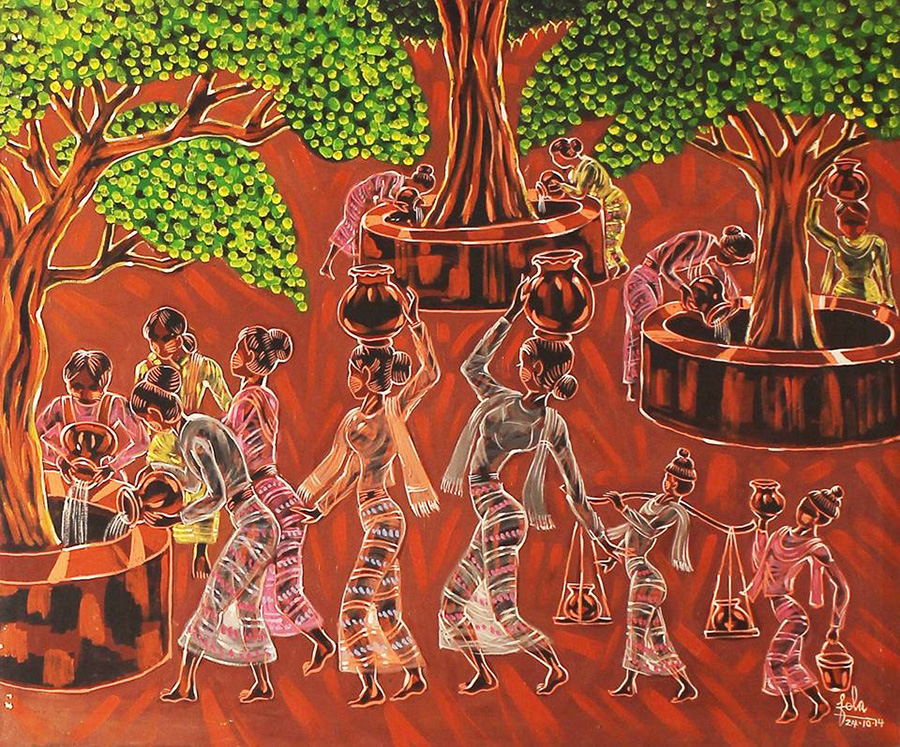

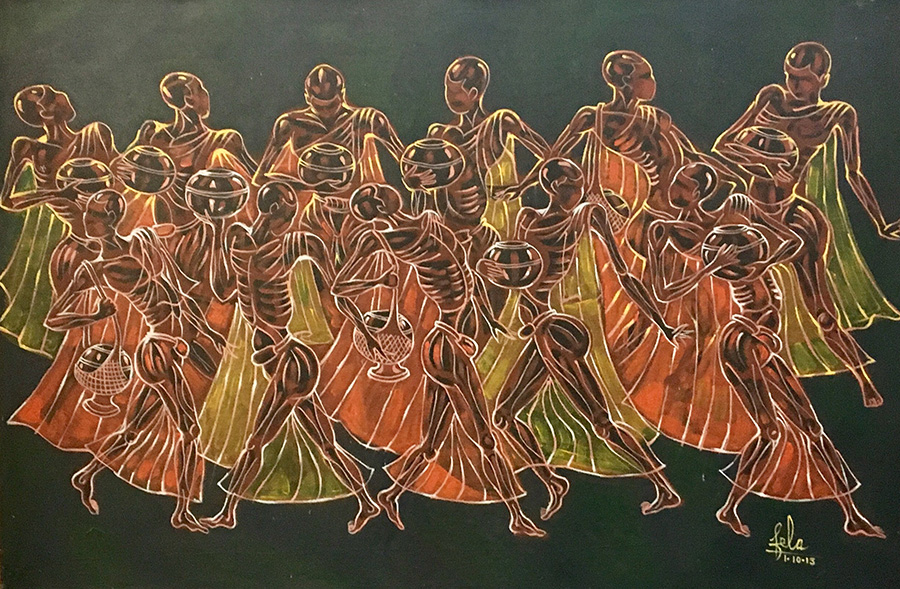


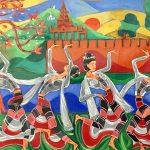
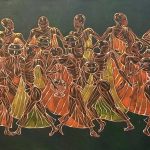
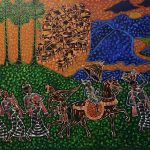
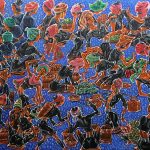

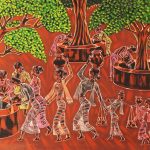

No comments:
Post a Comment
Note: Only a member of this blog may post a comment.